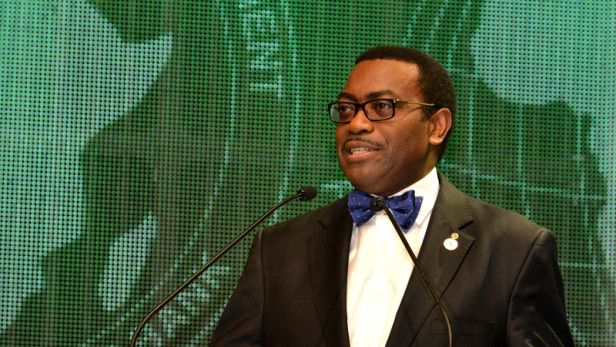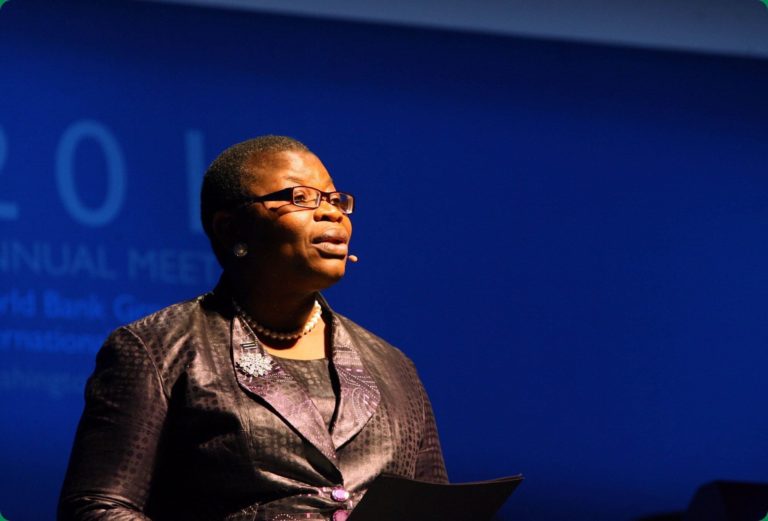The Chief Executive Officer, Inlaks (systems integrator and payment solution provider), Mr. Femi Adeoti, speaks to OZIOMA UBABUKOH on the subject of financial inclusion among other issues
The Central Bank of Nigeria announced in July that it was not on track to reach its target of increasing financial inclusion to 80 per cent by 2020. What are the constraints in meeting this set target?
One major challenge we have with financial inclusion is the lack of a national identification system. As a result of this, the Know Your Customer requirements from the financial institutions can be quite stringent.
Some of the requirements stipulated as conditions to participate in the financial system, therefore, are hard to meet for the kind of people the policy is targeting. These people are the Bottom of the Pyramid people.
Therefore, since most of the BOPs live in rural areas, there is a need for other players to be involved in the provision of financial services in order to complement the efforts of the banks. That is a good reason to use super agents and an agent network to carry out last-mile banking services since these agents (corner shops, supermarkets, pharmacies, business centre and others) exist everywhere in the country.
What needs to be done by policy makers to ensure that poor Nigerians, especially farmers in the rural areas, get involved in the financial architecture?
The starting point and the most important questions are: Is there a need for the ordinary Nigerians to get involved in the financial system? Do these categories of people need these services? Are they willing to use these services and pay for it? The answer to these questions is a yes.
Since we know there is a need and the need is backed up with willingness to use and pay, then policy makers need to provide the right atmosphere to encourage use. Part of the right atmosphere is to ensure that every single Nigerian can be uniquely identified.
A national ID system would have been a better way to ensure participation in the financial architecture. However, in the absence of that, we need to find other ways to capture the details of those that we are enlisting.
The process should be relaxed without necessarily compromising key details. Inlaks and other selected super agents for this programme can assist with that since we would be closer to those that we are registering to be included.
Next, we need to ensure that we set realistic participation criteria along the value chain of financial inclusion. From the citizens who are customers to the agents who are service providers, to the banks whose financial services are being consumed, policy makers must address the barriers to getting involved.
Policy makers must set minimum service criteria to ensure efficiency, trust, customer service delivery, consumer protection and others in order to give an experience that is better than the alternative (keeping cash at home).
Finally, consumer literacy and education (in Nigerian major languages) are very important to serve as information and education on the existence of financial services, their rights as a customer, service expectations and the protection they have in case things go wrong.
What role can telecommunications companies play in deepening financial inclusion?
Telecommunication companies have a major role to play in deepening financial inclusion. Being the country with the highest mobile penetration in Africa means that the mobile phone can play a key role in deepening financial inclusion.
Mobile phones have also been used in other climes as platforms to render financial services in rural communities. Government can provide incentives for telecommunication companies to deploy high-quality data services in the rural communities since the 3Gs and 4Gs connections are usually deployed in cities.
Modest data services are required for the platforms on which these financial services run to operate effectively. Poor data services giving rise to service failures are going to be major disincentive for Nigerians to bring them into the financial architecture. In addition, service notifications by way of text messages are equally important to perform optimally to give good customer experience and satisfaction.
The national broadband policy also will help in all these areas.
Six per cent of Nigerians use their handsets for mobile transactions; this can’t be compared to Kenya’s 73 per cent, where two-thirds of her population have bank accounts. Are there lessons policymakers can learn from Kenya’s Mpesa?
Sure, there are many lessons that our policy makers can learn from the success of Mpesa in Kenya.
First, the national ID and a mobile phone were the only requirements to use the Mpesa service, which was available to most Kenyans.
Second, Kenya also has good telecommunication services with good internet bandwidth, and Safaricom has the dominant market share in the country. These are key peculiarities, which are important to mention in the Mpesa success story. So, our policy makers can adapt some of these learning in their policy formulation and implementation as lessons learnt from Mpesa.
For me, we need to evolve our own unique model suitable to our people and our country and learn from it and refine it to the level whereby it will be a successful model. However, a few lessons are instructive from Mpesa.
The fact is that Mpesa spoke to and addressed the need of many Kenyans in being able to send and receive money especially in rural Kenya. The need was there; the Kenyan banks had limited number of branches and Automated Teller Machines in rural Kenya.
Also, Mpesa connected to the average Kenyans right from the name of the service which in Swahili means mobile pesa; that is mobile money. With that, an average Kenyan can easily relate. There was also massive consumer education in local languages telling people about the existence of the service and benefits.
Many rural dwellers prefer to keep their money at home rather than bank it as the rigours of opening bank accounts discourage them. How can financial institutions make it less cumbersome for these people to open an account?
To encourage use of financial system by rural dwellers, there is the role of financial institutions as well as role of regulators of these institutions. I have spoken earlier about the role of regulators and policy makers. Let me mention a few of some of the roles of financial institutions.
To start with, let us bear in mind that these institutions cannot do anything outside of their regulatory provisions. Having said that, financial institutions must learn to wear their ‘social mission caps’ rather than always wearing their ‘financial goals cap’ when dealing with rural dwellers.
The mentality of classical commercial banking will discourage an average rural dweller. There was a case whereby a farmer (in his farm clothes) in Kenya refused to enter a banking hall because of the sparkling white tiles in the banking hall. That is one of the benefits of the shared agent programme as fintech organisations as ours will be in the middle to bridge the gap, having created an agent network.
Is there a relationship between economic prosperity and financial inclusion as over half of Nigerians leave on less than a dollar a day?
Certainly, there is a connection between economic prosperity and financial inclusion.
Being included in the financial architecture makes the average Nigerian to be ‘bankable’ and being bankable makes available many ways of improving the economic prosperity of the individual.
For example, the individual will be known within the financial system and will then be able to build a savings history, which can serve many purposes – from cushioning in case of emergency to profiling the individual for loans to improve their business.
Other ways by which financial inclusion impact economic prosperity is that the more people in the financial system, the better is government able to plan and design micro and macroeconomic policies to better the lives of the citizens.
Micro loans and micro savings have been demonstrated in Nigeria and other countries to improve the economic wellbeing of the people through improved access to business loans, improved ability to deal with emergencies through cash saved and financial discipline that accompany interaction with formal financial service providers.
What products does your organisation have in the pipeline towards reducing financial exclusion?
Inlaks is evolving from an information technology systems integrator into adding a number of businesses, which include payment solutions. We have obtained approval in principle as a super-agent and are currently rolling out a network of agents and a number of innovative last-mile banking services to bring people into the financial architecture.
Using our network of agents all over the country, we will provide the platform for rural Nigerians to have access to key banking services next to their doorsteps.
Using our platform, Nigerians will be able to open a bank account without visiting a bank branch. They will be able to transact using the account and use a debit card at the same location to send and receive money, buy airtime, pay bills like cable TV, utility and some other important financial services like requesting for a mini bank statement.
We will do all these within the regulatory provisions but with clear goals and objectives in terms of the number of rural people we plan to reach and serve.












